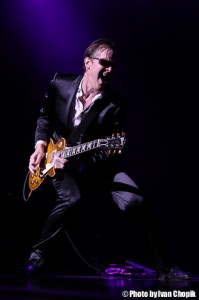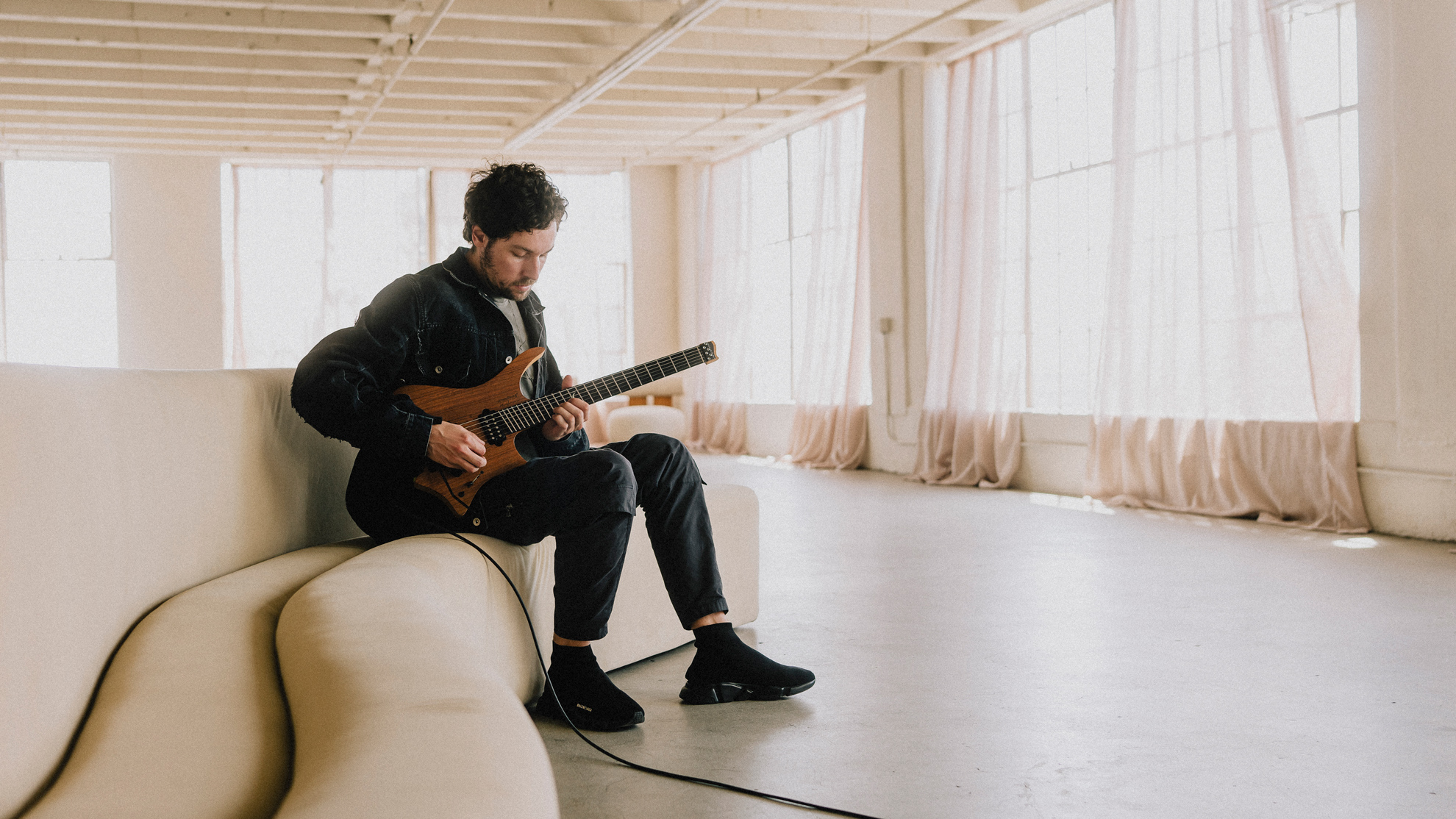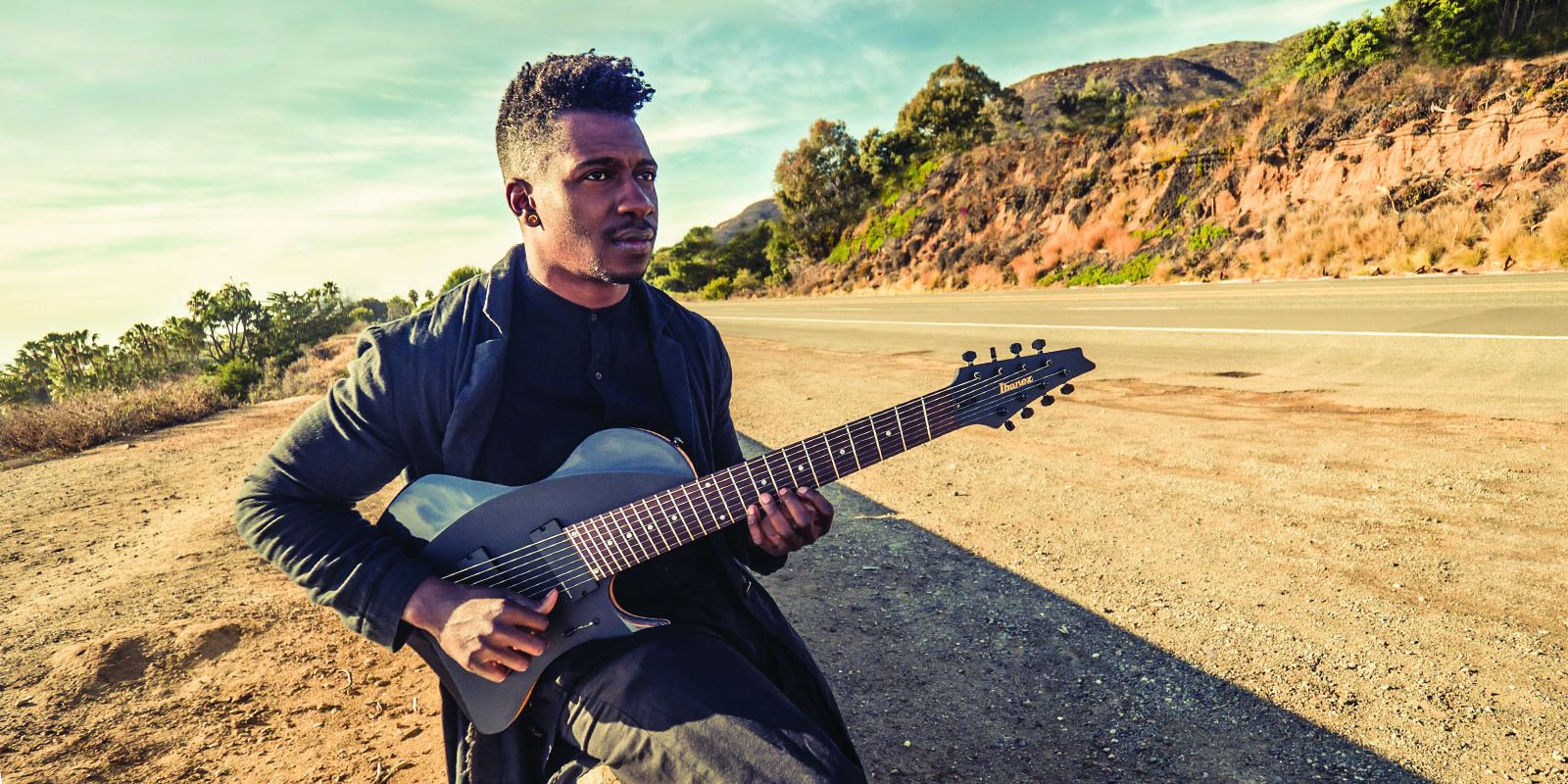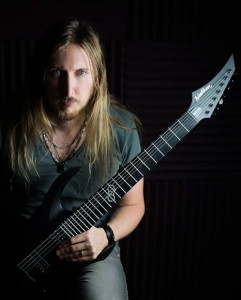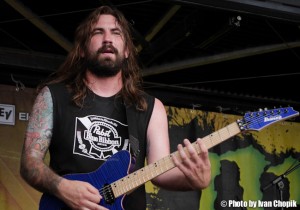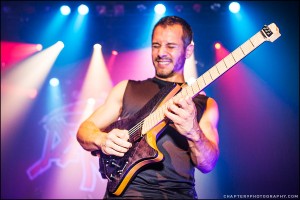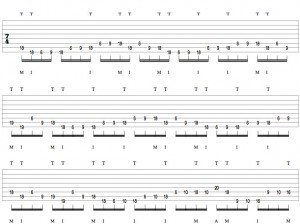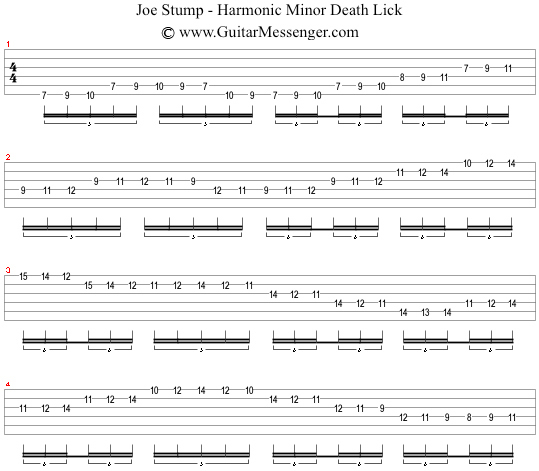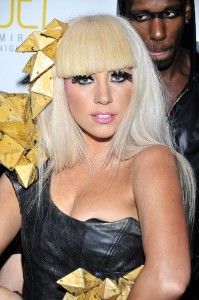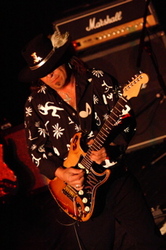 Every inch of the Waterbury Palace Theater is elegant enough to hold a crowd wearing tuxedoes and cocktail dresses – a far cry from the skeptical demographic of predominantly middle-aged men that attended the Stevie Ray Vaughan tribute show performed by guitarist Eddie Jelley and his band Cold Shot on April 12th. Although not completely satisfied with his performance, Jelley definitely rocked the stage and brought the blues music of Stevie Ray Vaughan back into attendee’s hearts.
Every inch of the Waterbury Palace Theater is elegant enough to hold a crowd wearing tuxedoes and cocktail dresses – a far cry from the skeptical demographic of predominantly middle-aged men that attended the Stevie Ray Vaughan tribute show performed by guitarist Eddie Jelley and his band Cold Shot on April 12th. Although not completely satisfied with his performance, Jelley definitely rocked the stage and brought the blues music of Stevie Ray Vaughan back into attendee’s hearts.
Jelley and his band took the stage with confidence, but also with instruments that were out of tune with each other, creating an awkward opening. Additionally, the sound crew overseeing the show took a long time to dial in the sound, overpowering a muddy rhythm section with Jelley’s loud guitar. The performers, however, were professional and experienced enough to communicate with each other musically and ‘tune up’ quickly on stage. The band looked and dressed the part, with Jelley even wielding a homemade SRV Stratocaster.
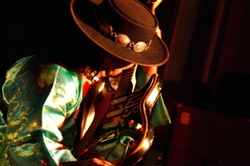 Desipite Vaughan’s vast influence on the guitar community, the easygoing Jelley claims that SRV is not his favorite guitar player, or even a major source of childhood inspiration. The self-taught guitarist takes care to note that his goal with this tribute group is not to precisely replicate SRV’s music, but to tour the SRV catalogue in an attempt to bring the legend and his music back into people’s lives. As much as his audiences enjoy his performances, of course they will always compare his performances against those of SRV.
Desipite Vaughan’s vast influence on the guitar community, the easygoing Jelley claims that SRV is not his favorite guitar player, or even a major source of childhood inspiration. The self-taught guitarist takes care to note that his goal with this tribute group is not to precisely replicate SRV’s music, but to tour the SRV catalogue in an attempt to bring the legend and his music back into people’s lives. As much as his audiences enjoy his performances, of course they will always compare his performances against those of SRV.
Eddie Jelley established himself as distinctive player who was not content to emulate SRV. He played more notes than the Texan would have, and chose licks outside of the Hendrix and Albert King repertoire that formed the basis of SRV’s blues. Jelley explains this by citing influences such as Neal Schon of Journey over more typical bluesmen like Eric Clapton. Jelley even performed in a Journey tribute band as well, and played many shows in the Connecticut area with the band “Salty Dog and the Good Rats” in his younger days.
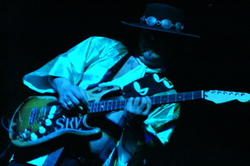 Though Jelley set himself apart musically from SRV, he was eager to emulate SRV’s famously engaging performance style. Jelley and his band studied SRV’s live DVDs – imitating SRV’s exaggerated facial expressions and reenacting crowd favorites down to the placement of drum solos. Jelley’s attention to detail in his presentation of SRV’s music reflects his desire to move as many people as possible.
Though Jelley set himself apart musically from SRV, he was eager to emulate SRV’s famously engaging performance style. Jelley and his band studied SRV’s live DVDs – imitating SRV’s exaggerated facial expressions and reenacting crowd favorites down to the placement of drum solos. Jelley’s attention to detail in his presentation of SRV’s music reflects his desire to move as many people as possible.
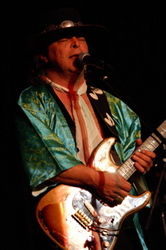 Although the band captured the visuals of Double Trouble, the overall sound was slightly unfilled during the standard SRV hits. Buildups were powerful, but the explosion that should have followed wasn’t quite as strong in comparison, as if the gains were not pushed high enough. Jelley, a seasoned touring musician, felt that the band’s performance was looser than their usual standard. Their rehearsal the day before the gig had been extensive, and by the time of the actual show the band was exhausted.
Although the band captured the visuals of Double Trouble, the overall sound was slightly unfilled during the standard SRV hits. Buildups were powerful, but the explosion that should have followed wasn’t quite as strong in comparison, as if the gains were not pushed high enough. Jelley, a seasoned touring musician, felt that the band’s performance was looser than their usual standard. Their rehearsal the day before the gig had been extensive, and by the time of the actual show the band was exhausted.
Eddie Jelley’s rig was as conservative as he is humble: he had one Marshall amp with no footswitch or pedal board, a Dunlop Crybaby wah pedal, an echo pedal and a Tube Screamer – no guitar stand or tuning pedal. However, when the sound was finally dialed in, this was sufficient enough to produce a great blues tone.
The band took a short intermission, allowing fans to go drink and smoke. This break served to liven the air of the Waterbury venue. The tribute band blasted into their second set, pulling a great deal of enthusiasm from the audience. SRV’s version of “Little Wing” was their best song of the night, and saw the band locking into a deep head-bobbing groove.
Overall, Cold Shot did a good job of recapturing the magic of Stevie Ray Vaughan, and his band Double Trouble. The show ended on the powerful hit “Voodoo Child,” which rocked the Palace and brought fans to their feet. This beautiful and soulfully delivered tune was the perfect show closer and left fans with a buzz of electricity and satisfaction – touched once more by the music of Stevie Ray Vaughan.




